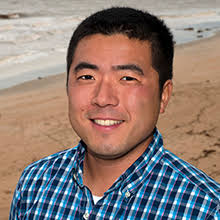Yui Takeshita, Monterey Bay Aquarium research Institute
Moss Landing Marine Labs Seminar Series - January 23rd, 2020
Hosted by The Chemical Oceanography Lab
MLML Seminar Room, 4pm
Open to the public
Submerged aquatic vegetation such as seagrass beds and kelp forests have been proposed as a potential strategy to locally ameliorate impacts of ocean acidification. However, kelp forests are known to thrive in highly dynamic systems, where chemical conditions are controlled by a complex interaction of physical and biological drivers. Thus, in order to accurately assess the potential and limitations for this strategy, we must first quantify the underlying natural processes that drive its variability. In this talk, I will present a paired-mooring experiment conducted in the summer of 2018 where a mooring was deployed inside and outside of the kelp forest right outside of Hopkins Marine Lab. The moorings were instrumented with pH and O2 sensors that provided high vertical resolution. The results will be discussed in the context of this kelp forest's potential to curb acidification stress, and how this site compares to others along the California coast.

My main research interests are focused on developing and applying new autonomous biogeochemical sensing technology. I use these new instruments to study various marine processes, especially in the coastal ocean where impacts of ocean change are felt most strongly by society. For example, we have used moored instrumentation to make habitat specific ocean acidification predictions in Southern California, and developed benthic flux systems to measure net calcification rates on coral reefs as a proxy for reef health. Currently our group is working on improving benthic flux systems for long term, sustained measurements; studying high frequency dynamics in coastal systems such as coral reefs, kelp forests, and sea grass beds; operating pH sensors on underwater gliders; and refining our thermodynamic model of CO2 chemistry in seawater to establish robust calibration protocols for pH sensors on autonomous sensor networks such as gliders and profiling floats.
I have been a scientist at MBARI since 2017. I received my Ph.D. at the Scripps Institution of Oceanography at UC San Diego under Todd Martz, and did a postdoc under Ken Caldeira at the Carnegie Institution for Science
I also hold an adjunct faculty position in the Ocean Sciences (link: https://oceansci.ucsc.edu/) department at the University of California Santa Cruz.

